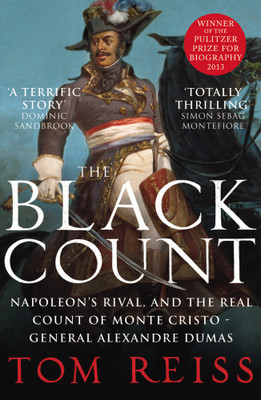To be honest, I only knew of one of the three Dumas men: the one who wrote The Count of Monte Cristo and The Three Musketeers. My French history is pretty patchy, too, so this book was full of information that was new to me — it’s amazing how little one can know about Nelson and Napoleon despite knowing their names and historical significance. It focuses on General Dumas: not the father or the son we know from literary works, but the father and grandfather of them. I had no idea he was a man of colour, the son of a slave and a white aristocrat.
The book covers a lot of more general history about race in Europe at the time, as well, and the French Revolution, but it also reveals General Dumas for a passionate, earnest, thoroughly decent sort of man. Too often we seem to idolise people whose legacy is mixed, but everything here suggests that while Dumas was a soldier, he abhorred unnecessary violence and pillaging. Yes, he killed, and gladly, for his cause, and sometimes in great numbers. But that was in the heat of battle, and he didn’t approve of the guillotine.
You can tell throughout the book the warmth that the author Dumas felt for his father, how he idolised him, and Reiss’ liking as well. And it’s amazing how much General Dumas has been erased from the history of a country he served with all his heart. Someone Reiss interviewed called it racism, and I can’t help but agree.
Rating: 4/5


This sounds really good. *makes a note*
I enjoyed it — and it won a Pulitzer…